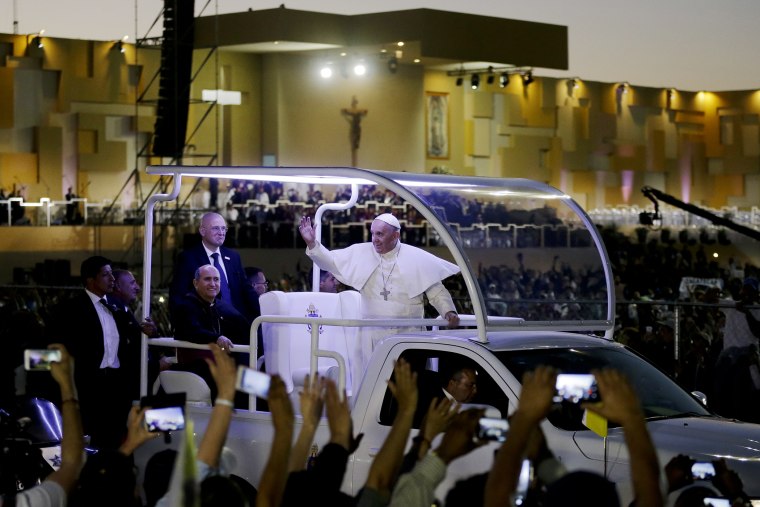Pope Francis on Thursday suggested using artificial contraception in countries afflicted with the Zika virus would be OK for women worried with how the disease is linked to rare birth defects.
Calling it a "lesser of two evils," Francis indicated that choosing to avoid pregnancy altogether would be the better alternative to abortion.
Abortion "is an evil in and of itself, but it is not a religious evil at its root, no? It's a human evil," he told reporters en route to Rome following his six-day visit to Catholic-heavy Latin America, which is grappling with a Zika outbreak.
"On the other hand, avoiding pregnancy is not an absolute evil," he continued. "In certain cases, as in this one (Zika), such as the one I mentioned of Blessed Paul VI, it was clear."
But the pontiff on Thursday also urged doctors to "do their utmost" to find vaccines to fight the mosquitoes that harbor and spread Zika.
"This needs to be worked on," Francis said.
The use of contraception is strictly prohibited under Roman Catholic Church teachings.
A passage in the Book of Genesis is often cited by scholars. In it, a son of Judah named Onan is described as wasting "his seed on the ground" when having sexual relations with his brother's widow, so that he doesn't impregnate her.
This form of contraception, however, upsets the Lord, who then smote Onan, the Bible says.
RELATED: Pope suggests Trump 'not Christian,' but others back Mexico wall
Francis didn't elaborate on any specific type of contraception, but his decision to not declare an outright ban is an about-face from what Brazilian church leaders have said. Brazil is battling a rise in Zika cases.
"Contraceptives are not a solution. There is not a single change in the church's position," said Brazilian Bishop Leonardo Ulrich Steiner, according to reports.
But Francis, while not completely opening the door to contraception in other similar scenarios, appears to be building on his predecessor, Pope Benedict XVI.
Benedict, who was pontiff from 2005 to 2013, had once held the line on the church's anti-birth control beliefs.
In 2009, he drew controversy for saying that condom use can aggravate the spread of AIDS in Africa.
"You can't resolve it with the distribution of condoms," the conservative pope told reporters aboard his papal jet after leaving AIDS-ravaged Africa. "On the contrary, it increases the problem."
But the following year, in what some reports called a "seismic shift," Benedict softened his stance on prophylactics and supported the use of condoms to fight AIDS — even if it results in preventing a pregnancy.
"In certain cases, where the intention is to reduce the risk of infection, it can nevertheless be a first step on the way to another, more humane sexuality," Benedict said, while also extolling abstinence as the preferred method.
When asked about the issue while leaving Africa after a six-day visit, he suggested the form of birth control was a mere "Band-Aid" solution. The continent, he said, had other pressing problems, including poverty and exploitation.
This article originally appeared on NBCNews.com.
